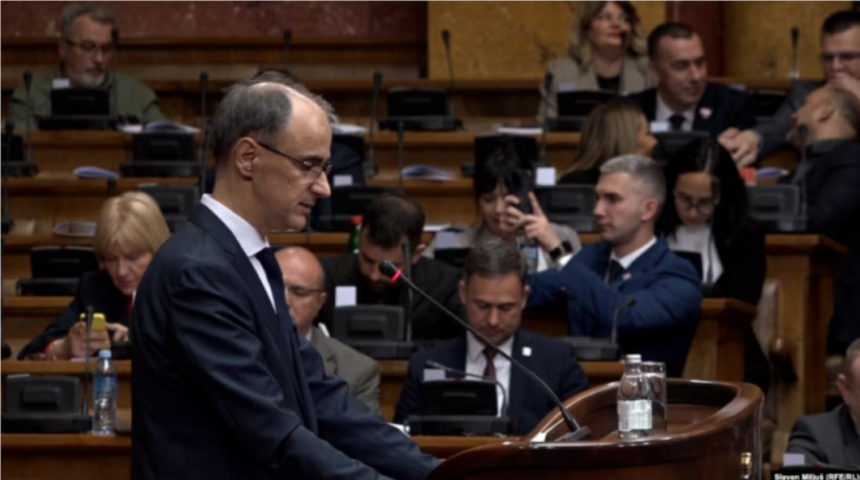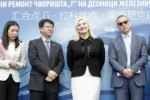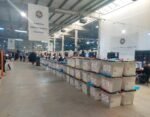The session in the Serbian Assembly for the election of the new government was interrupted after about eight hours of discussion. The session, which saw the absence of several opposition members, was announced to continue the following day.
The proposed cabinet composition consists of 30 ministers, with 10 new names. The mandator for the formation of the new government, Djuro Macut, presented his program to the deputies, emphasizing the need for institutions to function at full capacity.
“Serbia is tired of divisions and blockades. No one should or can have more rights than another, and that is the only true measure of value,” said Macut. He also addressed the protests and dissatisfaction, labeling them as a natural expression of generational divides, but stressed that blockades and the denial of others’ rights to work, study, and live normally were unacceptable.
Macut’s priority is the functioning of schools and universities, asserting that the denial of rights—such as freedom of movement and access to education—turns someone into an usurper of others’ freedoms. He emphasized that any dissatisfaction should be discussed in constitutional and legal frameworks, aiming to support the youth‘s efforts, while ensuring equal rights for all citizens.
Macut also called for ministers to be more connected with the people. “The government must gain agility and efficiency in serving the people,” he added.
During the session, after Macut’s speech, the debate began on the candidates and the program of the new government. On April 14, Macut submitted the cabinet proposal to the Assembly, along with the biographies of the proposed members.
The President of Serbia, Aleksandar Vučić, entrusted Macut with the mandate to form the new government on April 6, following consultations with parliamentary parties—though the opposition parties were not involved. The opposition proposed the formation of a transitional government, which was rejected by the ruling coalition.
Since March 19, the Serbian government has been in technical mandate following the resignation of Miloš Vučević as prime minister. This came after the violent incident where a group of students protesting the blockade of university faculties in Novi Sad was attacked by activists from the Serbian Progressive Party. The resignation followed protests led by students against the government, which had been ongoing since November 2024.
At the center of the students’ demands is the identification of legal and political responsibility for the deaths of 16 people in a concrete shelter collapse at Novi Sad Railway Station on November 1, 2024.







